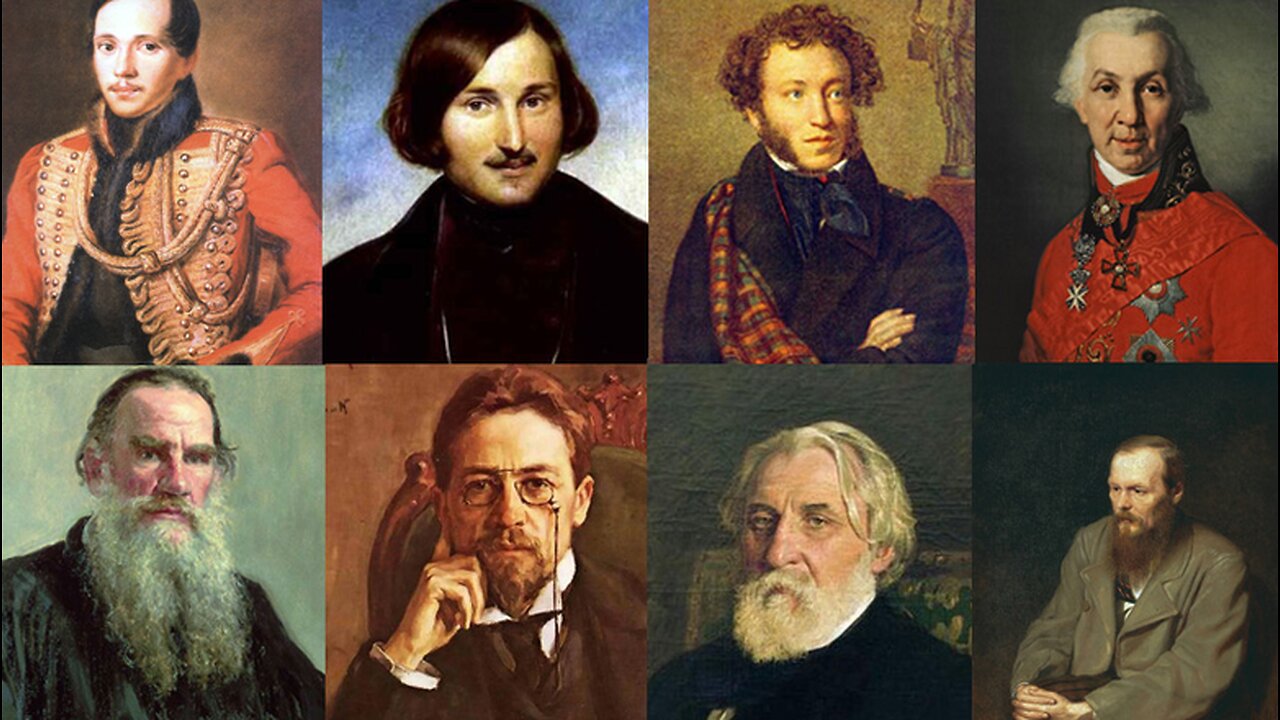Premium Only Content

Classics of Russian Literature | Lev Nikolaevich Tolstoy, 1828–1910 (Lecture 16)
Lecture 16: In the large novels by Tolstoy, the reader often feels as if he or she is entering an entire universe. Although this is undoubtedly an exaggeration, there is something God-like about the massiveness and the life-giving quality of Tolstoy’s writing. His life spans almost the whole period of highest Russian literary creativity. His opinions cover a vast range of Russian and human affairs, yet he can also be concerned with the smallest and most banal details of everyday family life. This dichotomy is perhaps best summed up in the beginning of his second great novel, Anna Karenina: “All happy families resemble one another; each unhappy family is unhappy in its own way. All was confusion in the Oblonsky household.” This literary giant lost his mother at an early age and his father not much later. He was thrown out of the University of Kazan’, and he partook in the fighting of the Crimean War in 1854–1855. His first work was a remarkable account of childhood, adolescence, and youth; shortly thereafter, he published an account of the long and bloody battle for the city of Sevastopol’, which controls the sea access to Crimea. A Siberian prisoner was deeply impressed by the writing of the young man. That prisoner’s name was F. M. Dostoevsky.
Suggested Reading:
Lev Tolstoy, Tales of Army Life, translated by Louise and Aylmer Maude.
Lev Tolstoy, Childhood, Boyhood, and Youth, translated and with an introduction by Michael Scammell.
T. G. S. Cain, Tolstoy.
-
 39:23
39:23
The Great Courses
2 months agoDecisive Battles of World History | Recent & Not-So-Decisive Decisive Battles (Lecture 36)
240 -
 2:18:15
2:18:15
Side Scrollers Podcast
22 hours agoBlizzard BANS Player for Saying “n00b” + Cracker Barrel Ends PRIDE Funding + MORE | Side Scrollers
61.7K27 -
 19:54
19:54
GritsGG
17 hours agoMAX SR Win on Warzone! Ranked Tips for Loadout & Landing Spot!
22.1K -
 44:41
44:41
Inverted World Live
16 hours agoPolitical Violence in Minnesota w/ AK Kamara
179K20 -
 6:29:40
6:29:40
SpartakusLIVE
16 hours ago#1 Massive MEAT-HEAD can't stop WINNING, can't stop FLEXING
96.6K -
 5:09:25
5:09:25
Drew Hernandez
17 hours agoGIDEON AI THREAT DETECTION SOFTWARE PUSH & NEW EPSTEIN EMAIL LEAK?
65.8K30 -
 2:03:51
2:03:51
TimcastIRL
13 hours agoTrans Minneapolis Shooter BLAMED Massacre On Mom & Gender Transition | Timcast IRL
212K409 -
 47:29
47:29
Man in America
20 hours agoIT DOESN'T ADD UP: The Trans Shooter's Story Is FULL of Holes
74.7K99 -
 3:59:36
3:59:36
StevieTLIVE
13 hours agoFriday Night Warzone HYPE
51.8K2 -
 3:47:10
3:47:10
SynthTrax & DJ Cheezus Livestreams
1 day agoFriday Night Synthwave 80s 90s Electronica and more DJ MIX Livestream Michael Jackson / AI Art Compilation Edition
58.3K2